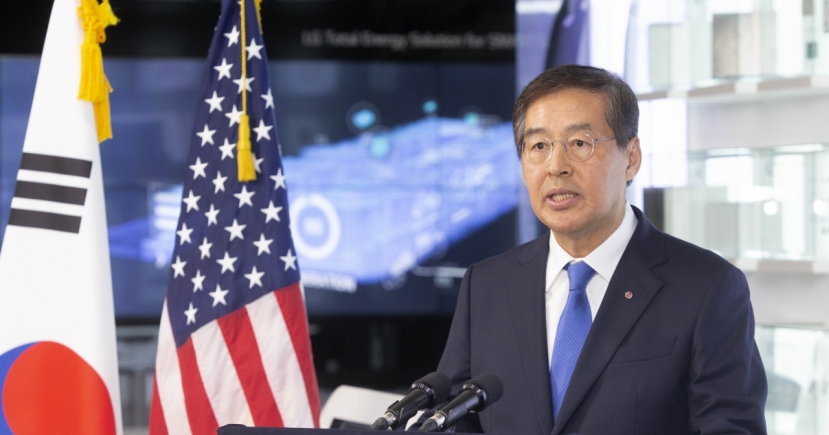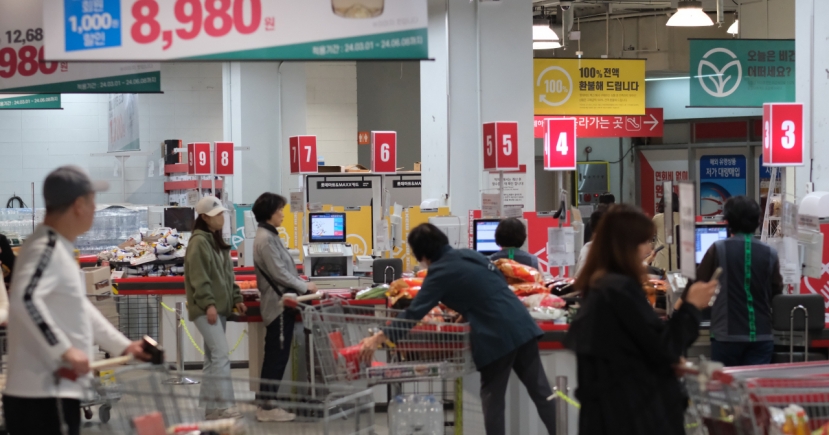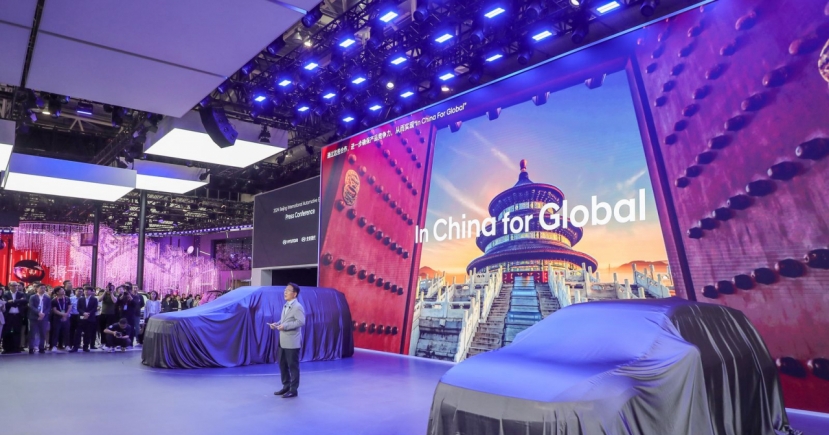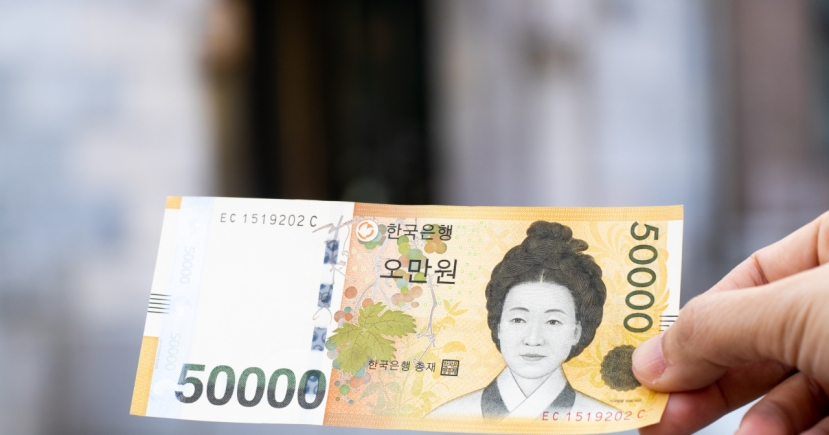Economy
Korea Inc. gropes for new business-politics ties
[THE INVESTOR] Calls are rising for business and political circles in Korea to forge a new constructive relationship replacing old collusive ties and work together to draw up a blueprint for the future of the national economy that has seen its growth potential continuously weakening.
Political parties have competitively put forward measures aimed at tightening restraints on big businesses, many of which have been embroiled in the massive corruption scandal that led to the impeachment and arrest of President Park Geun-hye.
On the other hand, lawmakers mainly from opposition parties have blocked the passage of bills that corporate leaders say are essential for boosting the competitiveness and efficiency of the Korean economy.
Economists say the current momentum toward overhauling the longstanding collusive links between business and politics should serve to set up a new growth model that puts emphasis on the initiatives of the private sector.
In keeping with a new wave of industrial revolution, the overstretched roles of the government should be reduced, they note.
“The government has exerted influence to the extent of suffocating the private sector,” said Lee Su-il, director of the Center for Regulatory Studies at the Korea Development Institute, a state-run think tank.
“Its roles in the economic field, unlike in the areas of safety, security and welfare, should be confined to coordination to help enhance the creativity of private-sector players,” he said.
Korea ranked near the bottom in a list of 138 countries surveyed by the World Economic Forum for its 2016-2017 comparison of national competitiveness in the degree of businesses feeling unshackled by government regulations.
Kim Wan-jin, an economics professor at Seoul National University, noted regulations would mostly become unnecessary if the transparency and accountability of corporate governance was enhanced as a result of the ongoing campaign to cut collusive ties between business and politics.
Economic commentators say the criticism of corrupt links should not be extended to result in closing or paralyzing contacts and consultations among corporate leaders and policymakers.
It is necessary to operate formal and transparent channels of dialog to ensure constructive and productive discussion on ways to upgrade Korea Inc., they note.
The Federation of Korean Industries, the main business lobby in the country, which would have been expected to lead business circles in setting up a new relationship with government officials and politicians, now finds it difficult to assume the role.
The organization has been under mounting public criticism for playing a conduit role in funneling huge sums from large corporations to two cultural foundations controlled by former President Park’s close confidante, Choi Soon-sil.
The country’s four largest conglomerates -- Samsung, Hyundai Motor, LG and SK -- quit the FKI after being subjected to investigations in connection to their donations.
The federation last month announced a set of self-reform measures aimed at cutting its murky connection with political circles and strengthening its function as a think tank for the corporate sector and society as a whole.
In a gesture to show its resolve, the business lobby changed its official Korean name, though its English title remains unaltered.
“We will go back to basics and meet the expectations placed on us,” said FKI Chairman Huh Chang-soo in a press conference, adding the organization would make a 40 percent reduction in its budget and workforce.
But the FKI, which has been regarded as representing the interests of big companies, has vowed to continue to carry out a major role in promoting economic cooperation with foreign countries on a private level.
Eom Chi-sung, an FKI official in charge of international affairs, noted economic exchanges and networking in the private sector are “important now more than ever” amid growing uncertainties in the global business environment.
Filling the void left by the FKI is the Korea Chamber of Commerce and Industry, which has some 160,000 members and encompasses a broader range of companies.
KCCI President Park Yong-man made a round of visits to the five political parties last month to convey proposals he hoped would be taken into account in drawing up their presidential campaign pledges.
Park described the suggestions not as a mere wish list of the corporate sector but as key agenda that needed to be discussed between political and business circles to build a fair society, promote the market economy and secure future prosperity.
Observers saw his move as a meaningful attempt at resetting the relationship between business and politics.
The KCCI is also planning to invite presidential candidates to give a lecture to and hold a debate with its members in the run-up to the May 9 election.
There have been concerns the two main business bodies may often be at odds down the road.
In February, the KCCI rejected a proposal from the FKI and three other business associations to take a joint stance against commercial code revision bills pushed by lawmakers.
The KCCI and FKI are expected to vie for a leading role in economic diplomacy on the private level.
A corporate executive, who requested anonymity, said it would be necessary for all business associations, including the two main entities, to make a joint response to anti-business measures by political parties.
“In the future, it may become a little bit more difficult for business circles to raise their voices in unison,” he said.
By Kim Kyung-ho/The Korea Herald (khkim@heraldcorp.com)
Political parties have competitively put forward measures aimed at tightening restraints on big businesses, many of which have been embroiled in the massive corruption scandal that led to the impeachment and arrest of President Park Geun-hye.
On the other hand, lawmakers mainly from opposition parties have blocked the passage of bills that corporate leaders say are essential for boosting the competitiveness and efficiency of the Korean economy.
Economists say the current momentum toward overhauling the longstanding collusive links between business and politics should serve to set up a new growth model that puts emphasis on the initiatives of the private sector.
In keeping with a new wave of industrial revolution, the overstretched roles of the government should be reduced, they note.
“The government has exerted influence to the extent of suffocating the private sector,” said Lee Su-il, director of the Center for Regulatory Studies at the Korea Development Institute, a state-run think tank.
“Its roles in the economic field, unlike in the areas of safety, security and welfare, should be confined to coordination to help enhance the creativity of private-sector players,” he said.
Korea ranked near the bottom in a list of 138 countries surveyed by the World Economic Forum for its 2016-2017 comparison of national competitiveness in the degree of businesses feeling unshackled by government regulations.
Kim Wan-jin, an economics professor at Seoul National University, noted regulations would mostly become unnecessary if the transparency and accountability of corporate governance was enhanced as a result of the ongoing campaign to cut collusive ties between business and politics.
Economic commentators say the criticism of corrupt links should not be extended to result in closing or paralyzing contacts and consultations among corporate leaders and policymakers.
It is necessary to operate formal and transparent channels of dialog to ensure constructive and productive discussion on ways to upgrade Korea Inc., they note.
The Federation of Korean Industries, the main business lobby in the country, which would have been expected to lead business circles in setting up a new relationship with government officials and politicians, now finds it difficult to assume the role.
The organization has been under mounting public criticism for playing a conduit role in funneling huge sums from large corporations to two cultural foundations controlled by former President Park’s close confidante, Choi Soon-sil.
The country’s four largest conglomerates -- Samsung, Hyundai Motor, LG and SK -- quit the FKI after being subjected to investigations in connection to their donations.
The federation last month announced a set of self-reform measures aimed at cutting its murky connection with political circles and strengthening its function as a think tank for the corporate sector and society as a whole.
In a gesture to show its resolve, the business lobby changed its official Korean name, though its English title remains unaltered.
“We will go back to basics and meet the expectations placed on us,” said FKI Chairman Huh Chang-soo in a press conference, adding the organization would make a 40 percent reduction in its budget and workforce.
But the FKI, which has been regarded as representing the interests of big companies, has vowed to continue to carry out a major role in promoting economic cooperation with foreign countries on a private level.
Eom Chi-sung, an FKI official in charge of international affairs, noted economic exchanges and networking in the private sector are “important now more than ever” amid growing uncertainties in the global business environment.
Filling the void left by the FKI is the Korea Chamber of Commerce and Industry, which has some 160,000 members and encompasses a broader range of companies.
KCCI President Park Yong-man made a round of visits to the five political parties last month to convey proposals he hoped would be taken into account in drawing up their presidential campaign pledges.
Park described the suggestions not as a mere wish list of the corporate sector but as key agenda that needed to be discussed between political and business circles to build a fair society, promote the market economy and secure future prosperity.
Observers saw his move as a meaningful attempt at resetting the relationship between business and politics.
The KCCI is also planning to invite presidential candidates to give a lecture to and hold a debate with its members in the run-up to the May 9 election.
There have been concerns the two main business bodies may often be at odds down the road.
In February, the KCCI rejected a proposal from the FKI and three other business associations to take a joint stance against commercial code revision bills pushed by lawmakers.
The KCCI and FKI are expected to vie for a leading role in economic diplomacy on the private level.
A corporate executive, who requested anonymity, said it would be necessary for all business associations, including the two main entities, to make a joint response to anti-business measures by political parties.
“In the future, it may become a little bit more difficult for business circles to raise their voices in unison,” he said.
By Kim Kyung-ho/The Korea Herald (khkim@heraldcorp.com)






![[KH Explains] Korean shipbuilding stocks rally: Real growth or bubble?](http://res.heraldm.com/phpwas/restmb_idxmake.php?idx=151&simg=/content/image/2024/04/25/20240425050656_0.jpg)
![[Hello India] Hyundai Motor vows to boost 'clean mobility' in India](http://res.heraldm.com/phpwas/restmb_idxmake.php?idx=151&simg=/content/image/2024/04/25/20240425050672_0.jpg)
